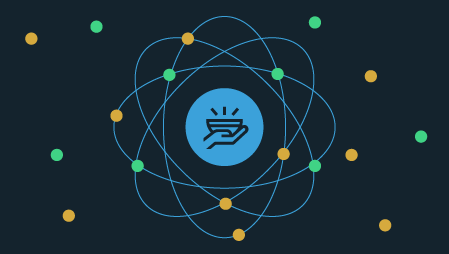“I need to automate my production facilities using the IoT and its vivid benefits. But how do I choose the right IoT strategy when there is plenty to choose from?” Let’s try to set things straight for you.
The purpose of any IoT solution is to bring drastic changes to businesses. For many companies out there, the introduction of IoT solutions have made it to the list of their strategic priorities. According to McKinsey, IoT technologies are currently used by 25 percent of businesses compared to 13 percent in 2014.
Getting Lost
However, if we study the market of IoT options, we may find ourselves lost in choice.
A lot of companies offer various out-of-the-box solutions. They sound and look pretty much like a perfect choice for you — they are ready for use and in many cases cover a lot of application scenarios. However, are they really super cool? Wouldn’t it be better if you go with coding your solution from scratch and having it made especially for you. To cut to the chase, will it not be more reasonable to have customized software?
To be honest, there is no universal answer.
The Bigger Is Not Always the Better
On the one hand, ready-made all-in-one solutions, due to their complex nature, can be predictably expensive, while a simpler and cheaper option may deal with your business problem just as well. Sometimes, when you need to achieve your specific business goal, a simpler customized version is a better option.
What is more, you shouldn’t forget that the bigger the solution the more money and efforts you may need to tune it properly. Again, in this case the solution built from scratch will help you avoid using additional software and reduce costs in the future.
Apart from that, a “box” solution normally has more secure features, since the developer’s team inputs more resources to eliminate any security issues and has more time for penetration testing.
However, in the long term, the “box” loses, because it often cannot cope with the client’s increasing demands and, to be honest, you cannot cover the entire scope of clients, so many ready IoT solutions are mostly universal in their application rather than specialized.
Custom development, on its part, offers good support and provides additional features that are inherent to the solution from the very start and that can be developed and added within the short timeframe. In other words, custom development is more focused on features.
In most cases, it is very hard to find the ready out-of-the-box solution in the market which would deal with your business task according to your expectations. You can purchase a certain basic IoT platform which would serve as the basis for your own product and configure it in accordance with your business strategy. However, when resorting to such option, we are limited by the functional capabilities of this platform as such, i. e. sometimes you won’t be able to do exactly what you need.
The advantage of customized development is that clients receive exactly what they need, with the functional capabilities specifically designed for their business. This is the most favorable way if you want your solution to look and function just the way you have always envisioned it.
Think Ahead When Choosing Your Way
We may surely say that if we deal with a small-scale company or a private individual who want to have the solution designed specifically for them and save money at the same time, it may be reasonable to use a prepackaged option and compile the final version with the help of a constructor. On the other hand, if a high-profile company wants to release something new into the market, customized development would be a better option in this case.
Let me illustrate my idea by considering the following example.
Let’s say, we have a small-scale wood processing plant, with the initial goal to monitor overall equipment efficiency (OEE). To cut the story short, its owners want to track how much time (in %) their plant is in operation to adjust the working process. At the initial stage, the “box” solution will win when it comes to costs and money, since the implementation in this case is cheaper and quicker. What is more, this situation often includes pilot operation which covers 5 to 10 data points (contrary to 100 points in the full-scale version) and includes reliable support on the part of the software vendor.
Take Your Time to Think It Over
We think that small and medium-size enterprises are the most probable beneficiaries when it comes to out-of-the-box solutions. They can use ready platforms and compile their own solutions using an IoT solution constructor, which will be easy to use and cost considerably less than starting from ground zero.
In any case, before making a choice, one should thoroughly think over you business processes and business needs. What makes the situation even more complicated is that no matter how well-elaborated and well-developed your solution is, your IoT project will most likely face certain difficulties during the implementation phase due to an urgent need for adjustments. That is why it is always best to take your time and try to take every detail into consideration within the scope of your abilities.
Originally published as a Forbes Technology Council post at forbes.com.




